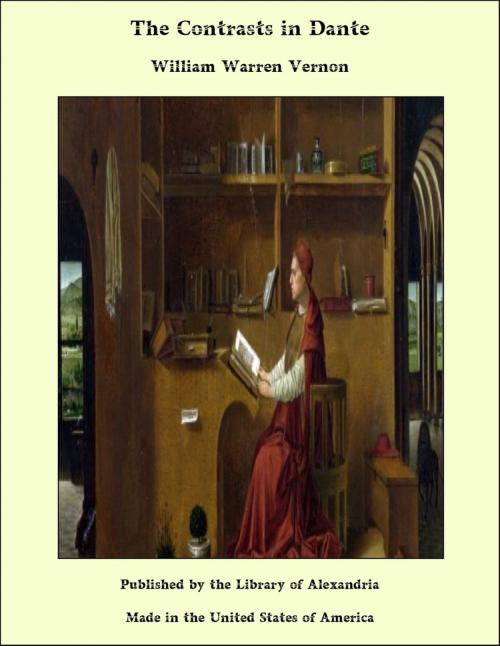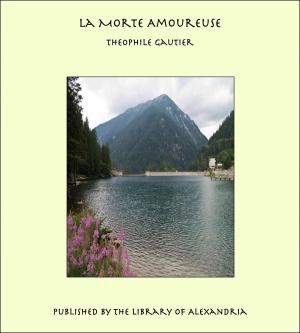| Author: | William Warren Vernon | ISBN: | 9781465615008 |
| Publisher: | Library of Alexandria | Publication: | March 8, 2015 |
| Imprint: | Language: | English |
| Author: | William Warren Vernon |
| ISBN: | 9781465615008 |
| Publisher: | Library of Alexandria |
| Publication: | March 8, 2015 |
| Imprint: | |
| Language: | English |
The enquiry is a very natural one, for what greater contrast can there be than between the dark and hopeless terrors of the Inferno, the tender consolations of the Purgatorio, and the serene splendours of the Paradiso, the very Holy of Holies of the Divine Comedy, where hope is no longer needed, because it has been already realized? In the Purgatorio alone does Hope exist, for be it remembered that Dante's examination on Hope by St. James in the Paradiso does not refer to either of the three Kingdoms of the dead, but only to Man living on earth. My answer then to the question would be the counter-question: "When you look at a grand landscape by Cuyp, by Ruysdael, by Rubens, or by Hobbema, which do you most admire, the dark shadows, the brilliant highlights, or the free and spirited middle-tints?" My questioner would of course retort: "How can one separate a complete picture into the various strata which go to make up one single and harmonious entirety? In a perfect whole there must of necessity be contrasts; variety, not sameness. In music, discords in one place bring out beauties and harmonies in another." It is this natural law that Dante has evidently wished to follow in the Divina Commedia, which is the mighty conception of such a master mind as has rarely been observed in the whole history of the human race. As we move from the Inferno to the Purgatorio, and pass on to the Paradiso, we read the record of the wandering, the awakening, the disciplining, and the emancipation of a soul.
The enquiry is a very natural one, for what greater contrast can there be than between the dark and hopeless terrors of the Inferno, the tender consolations of the Purgatorio, and the serene splendours of the Paradiso, the very Holy of Holies of the Divine Comedy, where hope is no longer needed, because it has been already realized? In the Purgatorio alone does Hope exist, for be it remembered that Dante's examination on Hope by St. James in the Paradiso does not refer to either of the three Kingdoms of the dead, but only to Man living on earth. My answer then to the question would be the counter-question: "When you look at a grand landscape by Cuyp, by Ruysdael, by Rubens, or by Hobbema, which do you most admire, the dark shadows, the brilliant highlights, or the free and spirited middle-tints?" My questioner would of course retort: "How can one separate a complete picture into the various strata which go to make up one single and harmonious entirety? In a perfect whole there must of necessity be contrasts; variety, not sameness. In music, discords in one place bring out beauties and harmonies in another." It is this natural law that Dante has evidently wished to follow in the Divina Commedia, which is the mighty conception of such a master mind as has rarely been observed in the whole history of the human race. As we move from the Inferno to the Purgatorio, and pass on to the Paradiso, we read the record of the wandering, the awakening, the disciplining, and the emancipation of a soul.















